Contribute your ideas for $50m investment
Wine Australia is inviting the Australian grape and wine community to submit new, bold, exciting and engaging ideas to help increase wine exports and inbound tourism to wine regions. Submissions are sought from the wine sector and wine-region tourism operators to contribute to Wine Australia’s activities under the Australian Government’s $50 million Export and Regional Wine Support Package. Wine Australia’s Chief Executive Officer Andreas Clark said the consultation will help to shape how the support package will benefit regional wine producers and assist export-focused businesses to continue to grow.
